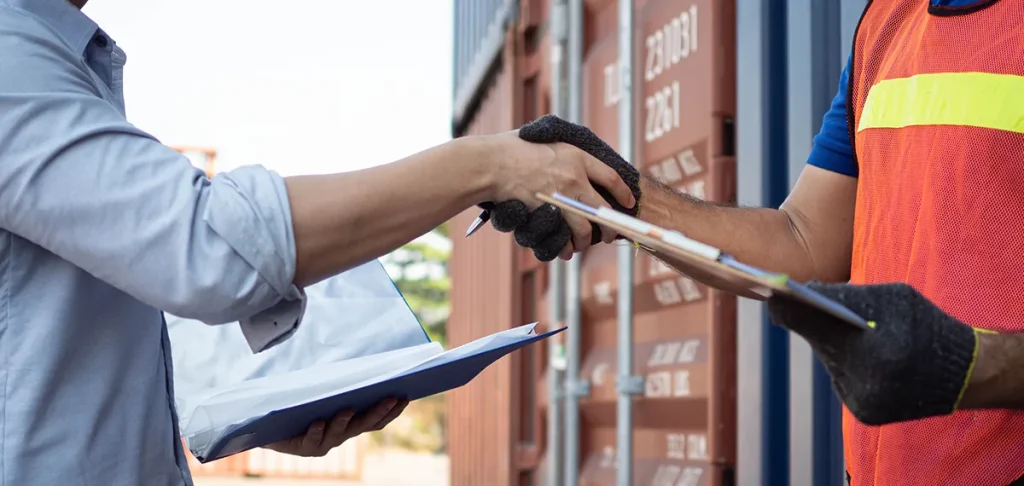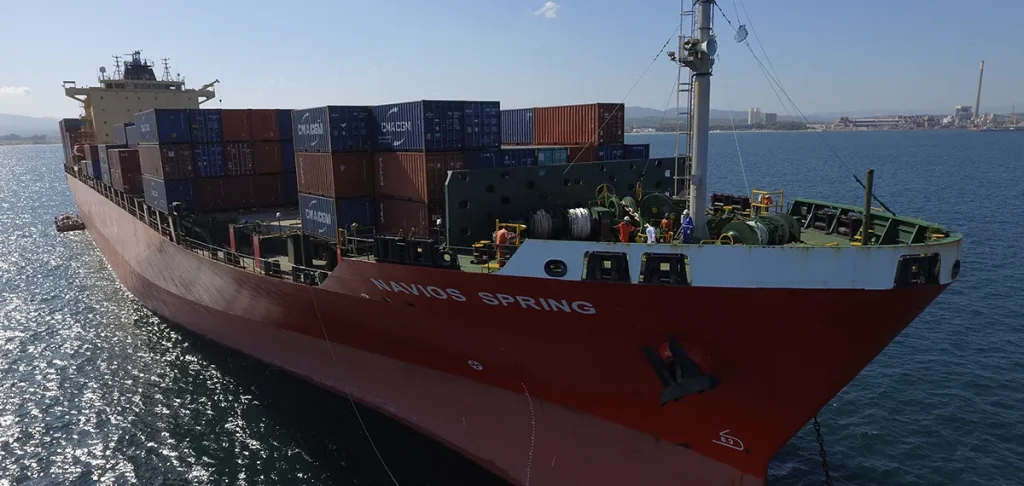Navigating international shipping can be complex, especially when it involves multiple jurisdictions, regulatory requirements, and high-value or sensitive cargo. One of the most common sources of confusion in logistics is the distinction between a customs broker and a freight forwarder: two essential but distinct roles in international trade.
At Ibérica Marítima, we are a licensed customs broker with over six decades of experience coordinating maritime and customs operations across strategic ports. We know that success in global shipping depends on having the right partners at each stage. As part of our integrated ship agency services, we help businesses across the maritime sector streamline both logistics and compliance ajustes delivering tailored solutions.
What is a freight forwarder
To define a freight forwarder, we consider a specialized agent responsible for coordinating international shipping logistics.
Core responsibilities of a freight forwarder
Freight forwarders manage numerous tasks, including cargo scheduling, selecting optimal shipping routes, coordinating transport modes (land, sea, air), cargo consolidation, warehousing, and preparing essential documents like bills of lading. Additionally, they often assist with cargo insurance and provide tracking updates to ensure transparency and reliability throughout the shipping process.
When should you contact a freight forwarder
You should engage a freight forwarder when your priority is efficient logistics management and safe transportation of goods internationally. Forwarders excel in handling complex shipping scenarios, including multiple transportation methods and routes, large volume shipments, and time-sensitive deliveries. They are also valuable when shipping to new or complicated markets where local logistics knowledge is crucial.
Now that we’ve explored the role of a freight forwarder, let’s take a closer look at the work we do as customs brokers.
What is a customs broker
A customs broker is a licensed specialist responsible for managing the clearance of imported and exported goods, ensuring full legal compliance and minimizing delays or penalties during customs procedures.

Main duties of a customs broker
Customs brokers primarily:
- Prepare and submit customs documentation.
- Calculate duties and taxes accurately.
- Ensure correct tariff classification.
- Maintain compliance with changing regulations.
In addition, they must stay up to date with changing regulations, such as those provided by organizations like the World Customs Organization.
Specialized custom brokers: focus on excise duties
Not all customs brokers are the same. While many provide general clearance services across a wide range of goods, others — like Ibérica Marítima Group — are highly specialized in specific types of customs operations. Our focus lies in managing excise duties, which apply to sensitive and high-stakes goods (fuels, alcohol, certain chemical products, etc.).
Handling excise goods goes far beyond routine customs clearance. It requires in-depth regulatory knowledge, meticulous documentation, and proactive coordination with customs authorities to avoid delays, penalties, or operational bottlenecks.
At Ibérica Marítima, we operate at the intersection of compliance and efficiency. Our team is trained to anticipate specific regulatory challenges, and to offer solutions that protect our clients’ supply chain while ensuring full legal compliance.
This level of specialization sets us apart from generalist customs brokers—and it’s a key reason why clients in the petrochemical and energy sectors rely on us.
Customs broker vs freight forwarder: what’s the real difference
Understanding the core differences between customs broker and freight forwarder roles is crucial. In summary, the main difference is that freight forwarders manage shipping logistics and physical cargo handling, whereas customs brokers deal explicitly with customs regulations, clearance, and documentation.
Comparison table: roles, services, and legal standing
| Aspect | Freight Forwarder | Customs Broker |
| Primary Role | Logistics and transport | Customs compliance and clearance |
| Main Services | Route planning, cargo consolidation, booking, documents | Tariff classification, duty calculation, customs filing |
| Legal Requirement | No license (in most markets) | Licensed by customs authorities |
Can you work with both a freight forwarder and a customs broker
Businesses often benefit from using both freight forwarders and customs brokers’ services to leverage comprehensive logistics and regulatory expertise, particularly for complex shipments and high-value goods.
Benefits of an integrated service provider
Both services are essential when importing high-value or regulated goods, during complex international transactions involving multiple jurisdictions, or when specific documentation and clearance expertise is crucial. Examples include pharmaceuticals, perishable goods, automotive parts, or shipments requiring multiple transport methods.
Opting for a partner that integrates freight forwarding and customs brokerage ensures streamlined communication, efficient problem-solving, reduced paperwork, and improved shipment tracking and compliance management. Such integration simplifies logistics, minimizes risks, and enhances overall operational efficiency.
Choosing the right partner for your international shipments
Choosing the right logistics partner —whether it’s a freight forwarder, customs broker, or an integrated solution— depends on your specific needs, from budget to regulatory complexity.

Factors to consider: cost, compliance, logistics complexity
Evaluate your shipment’s complexity, the regulatory requirements of your goods, budget constraints, and the need for specialized customs expertise when deciding between a broker vs freight forwarder. Considering these factors carefully will help you determine the most effective logistics partner for your business.
Red flags to watch out for
- Lack of proper licensing.
- Unclear or inconsistent pricing.
- Poor communication or customer service.
- Limited infrastructure or logistics network.
- Weak compliance knowledge.
- Unrealistic delivery promises or vague contracts.
Additionally, watch for unrealistic promises regarding shipment times and overly complex or ambiguous contract terms.
Conclusion: which one do you need?
The right mix of services depends on your shipping profile, the nature of your cargo, and your risk tolerance. In many cases, a coordinated freight forwarder and customs broker setup is the most efficient and secure solution.
At Ibérica Marítima, we don’t just move goods, we ensure every shipment is managed with precision, compliance, and accountability from origin to destination. Our teams handle logistics and customs as one continuous operation, reducing your workload and improving your reliability in front of clients.
When the cargo matters, the choice of partner does too.


